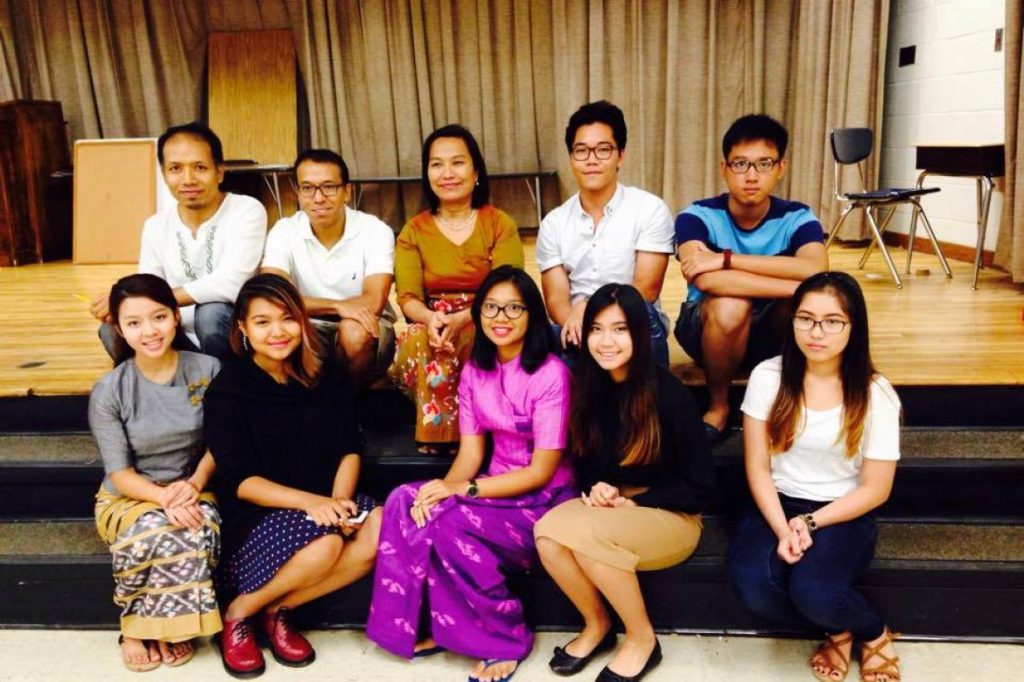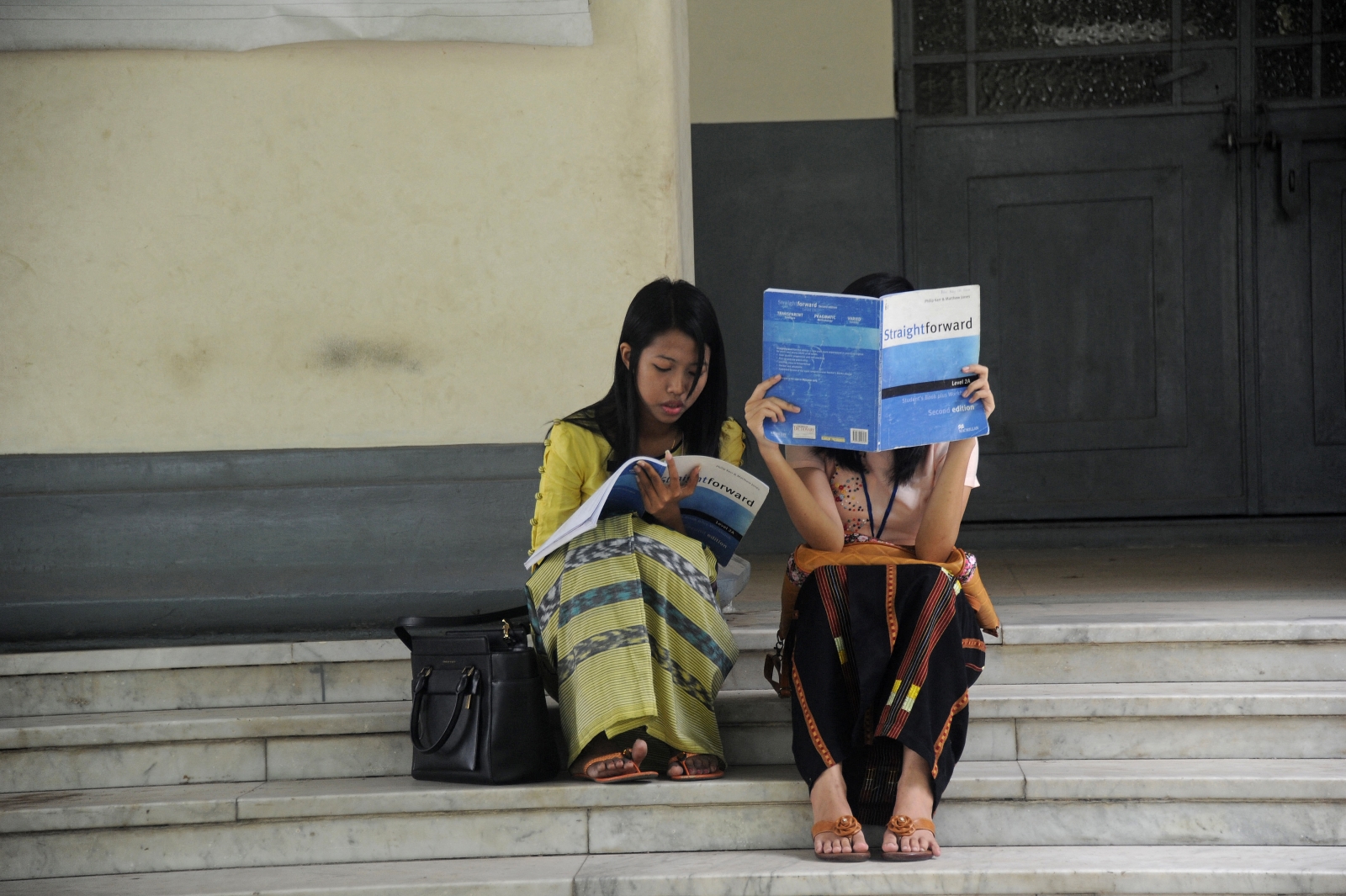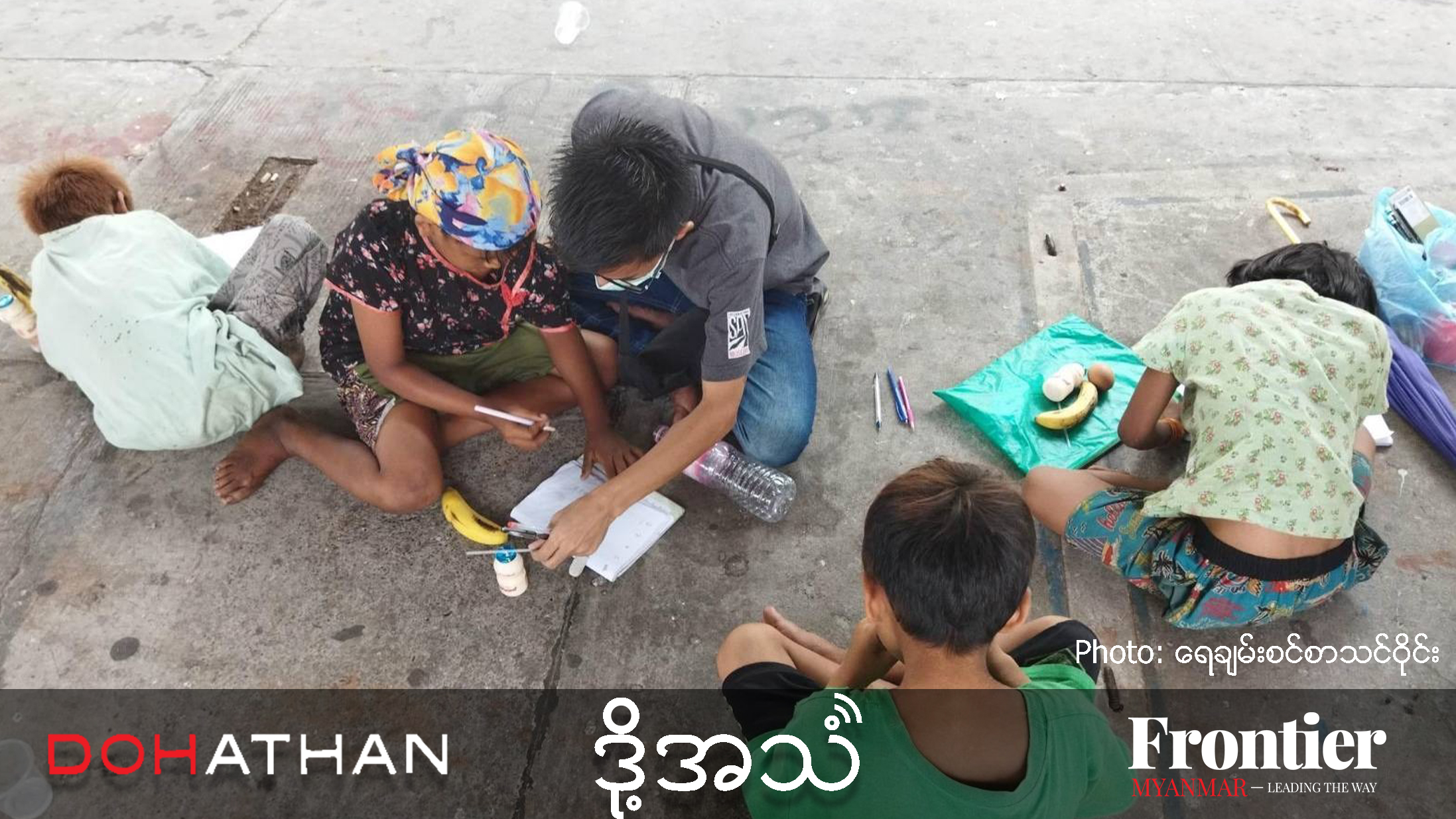The Thabyay Nyo school near Washington DC keeps Myanmar culture alive in a distant land.
Ma Lynn Pwint Naddy, 11, likes to think of herself as Burmese, not American. She speaks Burmese with her parents, she explains Burmese history and culture with her classmates, and she is learning the traditional dances of her native Yangon.
But Ma Lynn Pwint Naddy has not been to Burma (as her family chooses to call it) since she was a baby. For the last four years she has attended the Thabyay Nyo Burmese school, where her distant language and culture has been restored to her one Saturday at a time.
Thabyay Nyo, which is Myanmar for “Image of Burmese History”, holds weekly classes in a rented elementary school at Rockville, a small town just north of Washington DC. The school teaches Burmese language, history and culture for free to children from the 40 or so migrant families in the area. It was founded by Daw May Nyein, an activist and former literary criticism professor at Yangon University who went to the US in 2009 and began tutoring the children of political exiles from Myanmar. Thabyay Nyo launched in 2010 when Daw May Nyein and the other parents decided to make their sessions official.
“The parents thought the kids shouldn’t lose their mother language and their origin,” Daw May Nyein said. “At least, they can talk with their relatives when they visit Burma.”
In common with Daw May Nyein, the parents of many children at the school are refugees and asylum seekers. The children have spent only their earliest years in Myanmar, if any, and the school, run by about 10 volunteer teachers, serves as a kind of cultural focal point.
Support more independent journalism like this. Sign up to be a Frontier member.
“Lynn Pwint is a Burmese daughter and I want her to learn Burmese culture, Burmese language, how to spell,” said her mother, Mrs Ingjin Naing. She and her husband, both journalists for the government-funded international broadcaster Voice of America, want to make Myanmar something real and tangible for their daughter.
It is a constant fear of migrant parents that their children would ignore their heritage, Daw May Nyein said. the school was originally supposed to offer summer classes but parents pushed for it to be open every week. Most parents enforce attendance at the Saturday classes as scrupulously as they would at an ordinary school.
“Some Burmese youth get a job in Burma, as American citizens. The dream for their child, they want the children to do something for their country,” Daw May Nyein said.
Thabyay Nyo alumni have found work in Washington and other parts of the US as journalists, activists and Burmese language teachers. Older students in high school and college have enrolled on their own volition to fill in the gaps in their heritage. The 17-year-old daughter of Chin refugees, who was raised in the US, enrolled because she wanted to learn Burmese as well as her mother tongue, said Daw May Nyein.
“Mostly Chin people don’t want to speak Burmese, but she wants to speak Burmese and learn Burmese. Now she can speak well in just four months.”
She said many of the young students were interested “in Burmese like a subject, not like it’s their own country or their motherland, but like a history”.
The staff create textbooks and curriculum that tend of focus on the most colourful and fascinating aspects of Myanmar’s past, as well as current affairs. Old Bagan and Mandalay, with their ancient kings, are favourite topics.
If Ma Lynn Pwint Naddy could visit any city of her choice, it would be Yangon, where her parents were born. As she grows more connected to her motherland, she plans to spread knowledge and understanding of Myanmar as it works its way back into the global community.
“I feel connected because [the teachers] give you a lot of history. They give you details about the traditions and dances, and it feels like you’re already in Burma.”







